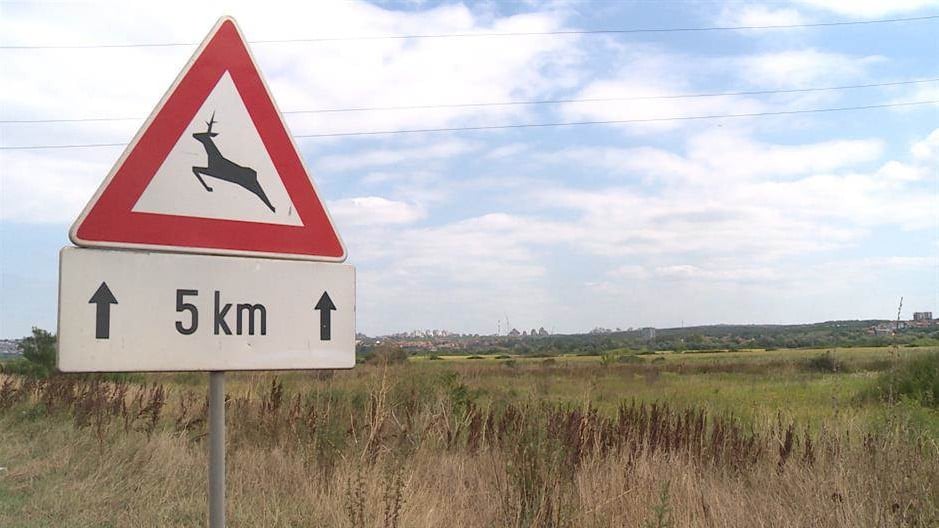
[ad_1]
Professor Ljubiša Ignjatović from the Faculty of Physical Chemistry sent a request to the members of the Belgrade Assembly not to vote on Tuesday for the adoption of the Plan for the detailed regulation of Makiško polje because any construction in that area would seriously endanger the Belgrade water supply.
 Makiško polje Photo: N1
Makiško polje Photo: N1The city authorities plan to allow the construction of 4.5 million square meters of residential and commercial space on 700 hectares of the protected hygienic-sanitary zone in Makiško polje.
In an interview with the Beta agency, Professor Ignjatović says that in that case, if housing construction starts near the Reni well in Makiško polje, most of Belgrade will surely run out of drinking water, and residents will be instructed to buy. bottled water in the markets.
“Councilors must show responsibility towards Belgrade and, above all, the future generations of this city.” “Unfortunately, I do not believe that they put the interest of Belgrade above the interests of the parties and the interests of potential investors, and time will show very quickly that the knowledgeable public who was against the construction of Makis was right,” Ignjatovic said.
Members of the Belgrade Assembly, the professor added, are our fellow citizens and neighbors, and they should not one day allow themselves to be ashamed of why they will vote on Tuesday.
He stated that in the protected area of the Makiški water intake, the construction of a settlement of 13,000 apartments for more than 40,000 inhabitants is planned, and with innumerable accompanying facilities.
Ignjatović said that the construction of the subway in that area, with stations and a subway depot, will also have a major impact on groundwater pollution.
“That new settlement would very quickly contaminate the water from nearby wells, and the city would be left without potable water,” said Ignjatović, professor of Environmental Protection at the Faculty of Physical Chemistry.
It points out that water is the most important resource in a country.
“If we destroy this resource that Belgrade now possesses, it will be destroyed forever. There is no doubt that Belgrade will be affected by the fate of Zrenjanin, where citizens have had no drinking water for almost two decades,” emphasized the professor.
Ignjatović says that the widest possible public discussion and consultation with the profession had to take place on the possible construction in the Makiški Intake Protected Zone area, and not that citizens should be informed through of the mass media before the act almost finished.
“From the fifties of the last century until today, this large hygienic-sanitary area has been carefully guarded for a reason, and Belgrade has always had quality drinking water. “Thanks to those protected rain pits along the Sava, Belgrade is almost the only European capital where tap water is healthy to drink,” Ignjatovic explained.
When asked by Beta if the government consulted the profession, the professor points out that the government, apart from the “Jaroslav Cerni” Water Management Institute, did not consult other scientific institutions and should have approached the University of Belgrade for an opinion. expert.
“Reni’s wells along the Sava have horizontal drains and the water that reaches them is filtered through multilayered sediments of natural origin. When these sediments are contaminated, they can never be cleaned or regenerated again, “said Professor Ignjatović.
When asked by Beta that the 100 river wells on the bank of the Sava River that the water processing plants draw from will be in danger, the professor said that the water from 39 river wells located on the Makiš – Ada Ciganlija stretch will be contaminated very quickly, already in progress. of the first construction works.
“That pollution will be from different origins, there will be heavy metals, but also stable organic pollutants,” Ignjatović said.
He recalled that the Makiški water intake with dozens of reni wells 20 to 30 meters deep used to be a big investment.
“It was a masterpiece of geoprofession and construction. The construction of these reni wells in the world was known and appreciated as the ‘Belgrade method’. “Belgrade is the first in the world in terms of the number of wells, relative to the number of inhabitants and the area,” he said.
When asked how Belgrade residents should behave in a situation where they are faced with running out of clean water, Ignjatović said that the scientists’ job is not to call for riots and protests, but rather that citizens should demand more transparent decisions from city authorities regarding his health.
“We did not hear any discussion and we had no construction plans. Only the numbers have been announced and we have been told that it will be something ‘magnificent’. We do not know who will benefit from that business and how much, but it is certain that the citizens of Belgrade will suffer a enormous damage. A person can live without everything, but cannot live without water, “concluded Professor Ljubiša Ignjatović.
Support us by being a member of the Danas Readers Club
In the age of widespread tabloidization, sensationalism, and media commercialization, we have been insisting on the principles of professional and ethical journalism for more than two decades. They banned us and called us, no government was kind to criticism, but nothing stopped us from informing them objectively every day. That is why we want to trust you.
Membership in the Danas Book Club for 799 dinars per month you help us stay independent and consistent with the journalism we believe in, and you receive a PDF of tomorrow’s Danas issue via email every night.
Related texts:
